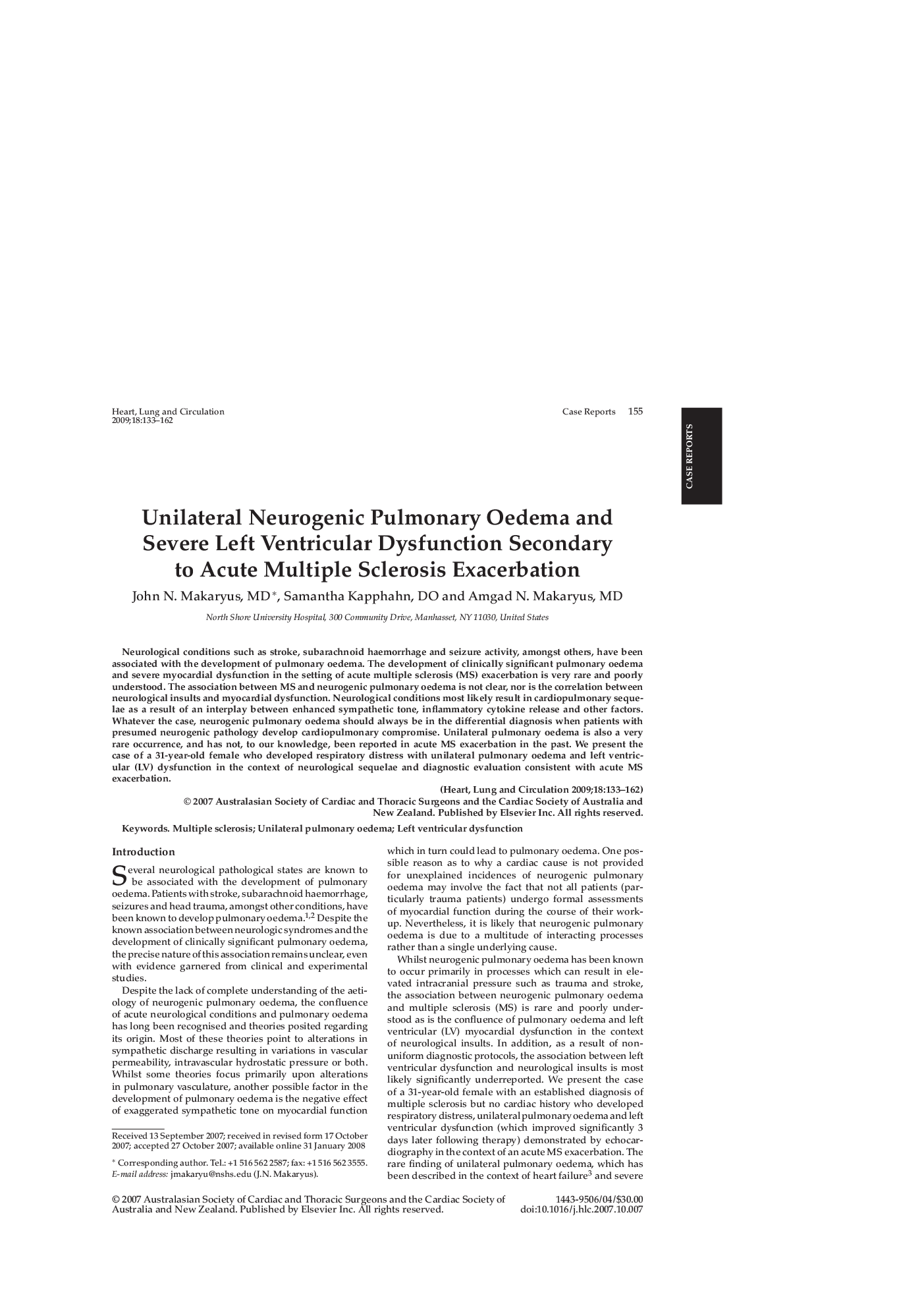| Article ID | Journal | Published Year | Pages | File Type |
|---|---|---|---|---|
| 2920966 | Heart, Lung and Circulation | 2009 | 4 Pages |
Abstract
Neurological conditions such as stroke, subarachnoid haemorrhage and seizure activity, amongst others, have been associated with the development of pulmonary oedema. The development of clinically significant pulmonary oedema and severe myocardial dysfunction in the setting of acute multiple sclerosis (MS) exacerbation is very rare and poorly understood. The association between MS and neurogenic pulmonary oedema is not clear, nor is the correlation between neurological insults and myocardial dysfunction. Neurological conditions most likely result in cardiopulmonary sequelae as a result of an interplay between enhanced sympathetic tone, inflammatory cytokine release and other factors. Whatever the case, neurogenic pulmonary oedema should always be in the differential diagnosis when patients with presumed neurogenic pathology develop cardiopulmonary compromise. Unilateral pulmonary oedema is also a very rare occurrence, and has not, to our knowledge, been reported in acute MS exacerbation in the past. We present the case of a 31-year-old female who developed respiratory distress with unilateral pulmonary oedema and left ventricular (LV) dysfunction in the context of neurological sequelae and diagnostic evaluation consistent with acute MS exacerbation.
Related Topics
Health Sciences
Medicine and Dentistry
Cardiology and Cardiovascular Medicine
Authors
John N. MD, Samantha DO, Amgad N. MD,
